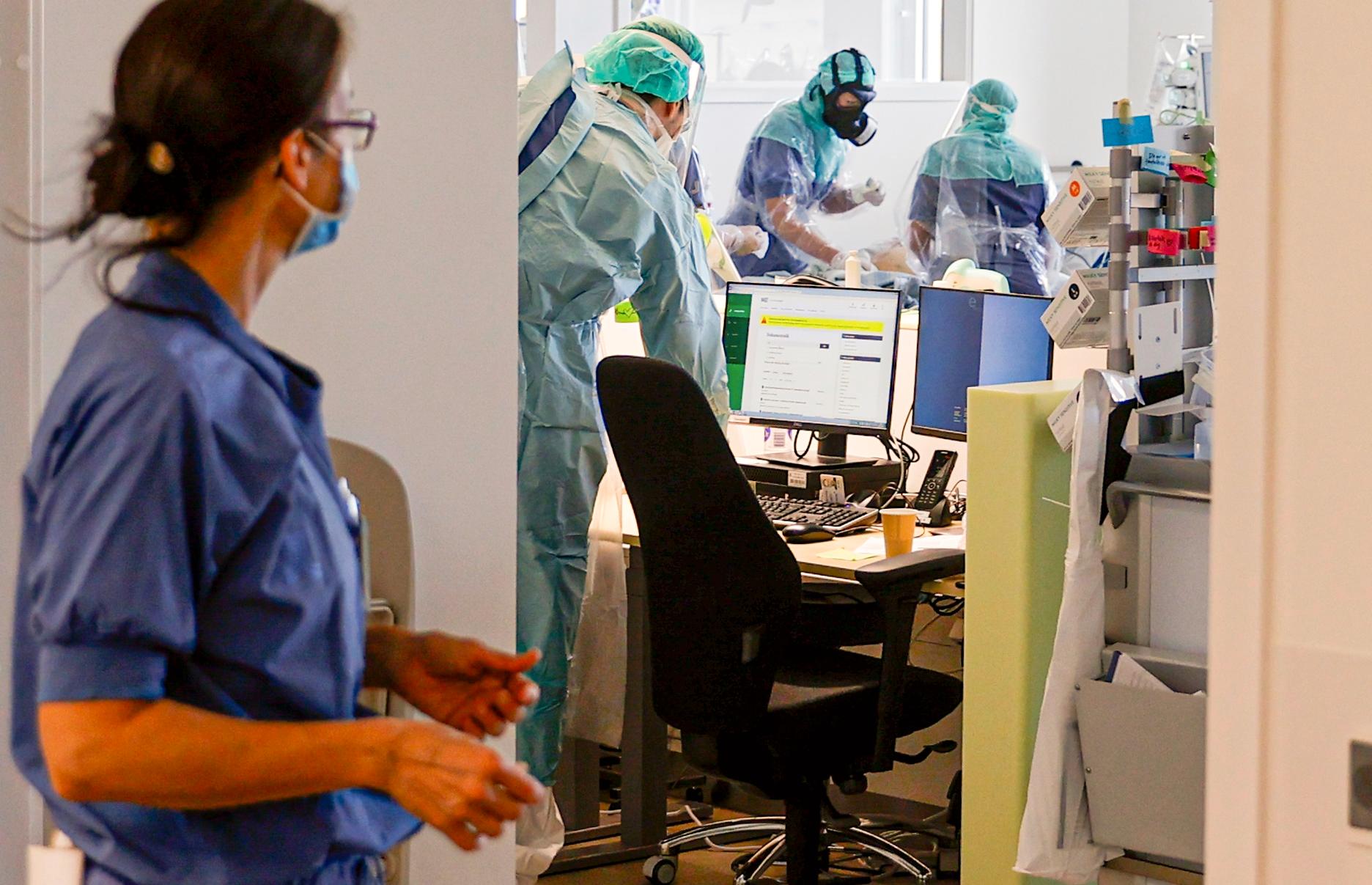39-year-old Alberto Perez took a rapid test at his home in Madrid because he has headaches and cold symptoms. For many others, a rapid test revealed he had covid-19.
The doctor’s office did not answer the phone. Therefore, he went to the emergency room, where he had to wait for three hours. Health workers in the emergency room agreed with him that he might have had coronavirus – but they didn’t get a PCR test to be sure.
– The nurse who looked at me said that I probably had an omikron, because I had not lost my sense of taste or smell. Perez asks, how could she know that.
Primary health care services in Spain are overwhelmed with patients who want to get tested or need sick leave. Health workers are overworked in the new Omicron wave, although the variant gives milder disease than the previous variants.
He thinks that the Corona pandemic is over
Across Europe, general practitioners are usually the first line. Together with others in the primary health care service, it is central to disease control, by relieving some of the pressure on hospitals and ensuring continuity.
In Spain, until a few weeks ago it was believed that the Corona pandemic was largely over. More than 80 percent of the population has been fully vaccinated. Now, however, rapidly increasing workloads mean that doctors and other health workers are having to cancel routine checks for other diseases.
Because Perez ran his rapid test at home, neither the hospital nor the local doctor’s office would use the much-needed resources to give him the PCR test. Thus, there was also no possibility of sequencing the test result to determine which variant Perez possessed. Thousands of other cases in Spain suffer the same fate.
Read also: Five reasons not to intentionally infect an omicron
“You left feeling like there are no resources or people, and that they solve the problem by covering up reality and sending people home,” he says.
Caroline Berchet is a health economist with the Organization for Economic Co-operation and Development (OECD). She says primary health care services across Europe have been underfunded and understaffed for many years. The pandemic has simply exposed the system’s weaknesses.
In the 38 OECD member states, including the United States, only 13 percent of the health services budget went to primary health services on average.
The primary health care service needs more money and investment across OECD countries to secure more employees, better wages and working conditions and more flexibility, says Burchett.
Go to the GP instead of the hospital
Paloma Rebella, spokesperson for the largest Spanish nursing association SATSE, explains the problem as follows: fewer people are hospitalized with the omicron variant. This means that many people with mild symptoms come to the doctor’s office and other parts of the primary health care service instead.
Infection rates are so high that we are taking the epidemic out of the health care system and asking people to treat themselves. She says it is very worrying.
In France, many years of budget cuts in the health care system are attributed to a significant shortage of doctors in rural areas. The same problem is affecting Italy, where the remaining GPs are being weighed down by the new Omicron wave, and they have to fill out additional documents to approve people’s return to school and work.
The expert has clear opinions about the use of the Corona testimonial:
Infection rates become inaccurate
Rebella thinks the authorities should be concerned about the consequences.
If you take the test at home, what kind of virus do you have? We do not know. Everything, including the length of the isolation period, is determined by the sequence of samples, and that sequence is not happening now, she says.
The daily infection figures that make headlines and that politicians and health leaders use to decide on measures are also inaccurate, as they were at the start of the pandemic.
People taking the test at home are not allowed to report the result to the crowded healthcare system. Many give up. Spain’s Health Minister Carolina Daria had to encourage people to report their rapid positive tests, even if they only had mild symptoms.
Hospitals got attention
Labor unions and other organizations say health workers can no longer keep up with requests for tests, advice, treatment and sick leave. Tracing the infection, once considered a key factor in the fight against the epidemic, has been forgotten.
The primary health care service has received little attention during the pandemic, as hospitals desperately struggle to keep up with the landslide of patients at the center. However, the problems in the primary health care service started much earlier, as a result of a lack of funding.
Spain was also hard hit by the financial and subsequent debt crisis from 2008 onwards, and the then Conservative government introduced strict austerity measures that led to sharp cuts to the health care system. In December, the current Spanish government announced a plan to improve the quality and provision of primary health care.
I had to stay home over the new year
Ten days after he finished quarantine at his home in Madrid, Alberto Perez still tested positive for rapid tests, but he has not been given a GP. When he finally got an answer on the phone from the doctor’s office, they told him to stay home over the New Year and offered a new phone call the following week.
Read also: Here it is not deleted any more: sets new terrible records
– There are not enough doctors and nurses, then we are left to deal with this on our own, he sighs.
(© NTB)

“Coffee trailblazer. Certified pop culture lover. Infuriatingly humble gamer.”




